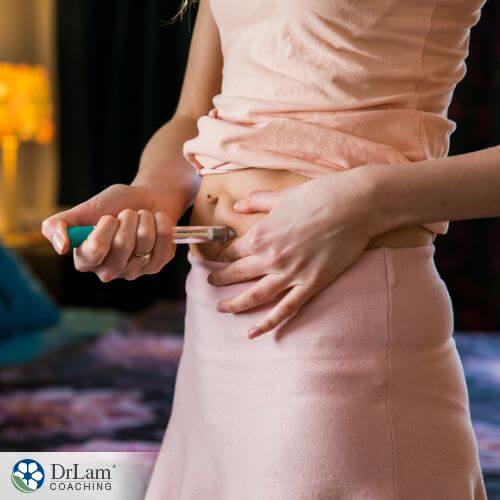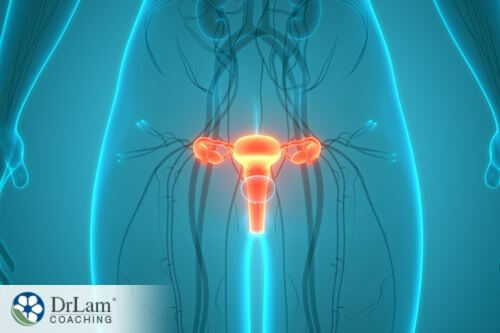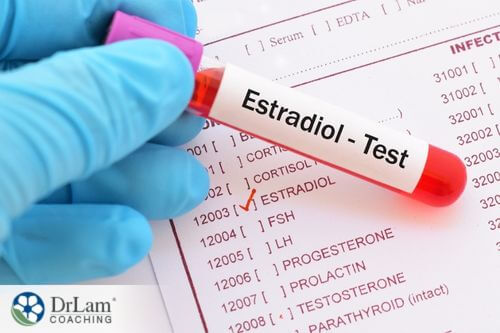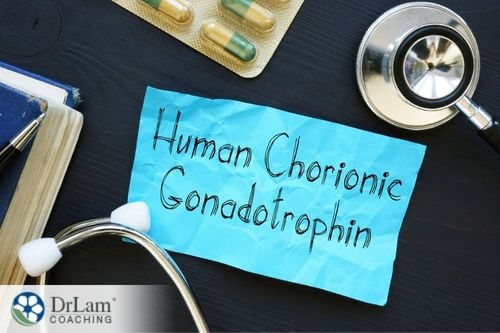 Many people look forward to having a child at some point in their lives. Yet many couples have difficulty conceiving. In most cases, this is the result of an imbalance in fertility hormones. These hormones play a key role in reproduction. And this could apply to both men and women.
Many people look forward to having a child at some point in their lives. Yet many couples have difficulty conceiving. In most cases, this is the result of an imbalance in fertility hormones. These hormones play a key role in reproduction. And this could apply to both men and women.
Fertility hormones determine whether an egg is viable, will mature, move to the womb, and promote fetal development. But this is not all these hormones are responsible for. On other hand, an imbalance in these hormones may affect not only fertility but could increase your risk of various health conditions as well. And these fertility hormones could also impact male fertility.
Hormones are chemical messengers. Secreted by the endocrine system, they travel to organs and tissues throughout the body to conduct their specific functions. These hormones play a vital role in growth and development, cognitive function, body temperature maintenance, metabolism, and of course, sexual function and reproduction.
The major endocrine organs in your body include the following:
An increased or decreased production of the hormones produced in your endocrine system can cause health issues. Many of these production discrepancies result from stress, increased cortisol production, and adrenal fatigue. Fertility issues are often linked to hormone imbalance.
In women, estrogen and progesterone work against each other in a balancing act. In so doing, they work to maintain hormone balance. This balance helps regulate the various aspects of the reproductive cycle such as menstruation, fertility, ovulation, pregnancy, and menopause. The balance also plays a role in determining energy levels, mood, and weight. Stress and its repercussions can affect this balance and thus contribute to various health issues.
Your NeuroEndoMetabolic (NEM) stress response coordinates your body’s response to stress. This response is governed by the Hypothalamic-Pituitary-Adrenal (HPA) axis. The NEM stress response results in an increase in cortisol production in the adrenal glands which form part of the endocrine system. But the adrenals also produce other important hormones.
With an increase in cortisol production, there is a decline in the production of other necessary hormones. While this state usually clears up after stress passes, continued stress results in heightened cortisol production over a prolonged period and a decline in levels of other key hormones. As a result, you may see a discrepancy in the levels of your other hormones which may lead to hormone imbalance. Infertility is one of the symptoms of a hormone imbalance.
Fertility hormones play a role in your ability to conceive, the development of a fetus, growth as a baby and child, the ability to reproduce, and even health later in life when menopause hits. The different fertility hormones that play a role in conception and fetal development include:
Although different fertility hormones each play a specific role in female sexual health, conception, and embryo development, one needs to remember that maintaining a balance allows them to function as they should.
 Both luteinizing hormone and follicular stimulating hormone are produced in your pituitary gland. They play a key role in ovarian function in women. Luteinizing hormone is part of the network that involves the hypothalamus, pituitary gland, and sex organs (in women, the ovaries, and in males, the testes). In the ovaries, it signals the need for the production of hormones that start and maintain the different reproductive processes.
Both luteinizing hormone and follicular stimulating hormone are produced in your pituitary gland. They play a key role in ovarian function in women. Luteinizing hormone is part of the network that involves the hypothalamus, pituitary gland, and sex organs (in women, the ovaries, and in males, the testes). In the ovaries, it signals the need for the production of hormones that start and maintain the different reproductive processes.
An increase in your luteinizing hormone levels usually indicates imminent ovulation. In other words, higher luteinizing hormone levels increase your chances of conception. However, balance is key, as too high or too low levels of this hormone could both decrease your fertility and could point to underlying health issues that you may need to deal with.
Common health issues associated with an imbalance in luteinizing hormone levels include:
Follicular stimulating hormone plays a role in the reproductive ability of both men and women. It also plays a role in sexual development during puberty, when the level of this hormone tends to rise. In girls, it signals the ovaries to produce estrogen, and in boys, it signals the testes to produce testosterone.
In women, the hormone helps control the menstrual cycle. It also stimulates egg cell growth in the ovaries. The hormone levels are usually highest just before ovulation when your pregnancy risk is highest. It also encourages an increase in estradiol production in a woman’s ovaries.
As far as men are concerned, this hormone encourages sperm cell production.
Remarkably high levels of this hormone may indicate either an ovary or testes malfunction, while extremely low levels could lead to incomplete pubescent development and ovarian insufficiency in women. This could hamper the ability to conceive. In men, low levels can result in a poor sperm count, although they could still possibly father a child.
Estradiol is an estrogen hormone released in a woman’s ovaries. It plays a significant role in ovulation, conception, and during pregnancy. Estradiol levels in women tend to increase during ovulation and promote egg maturation. The hormone, together with progesterone, also causes a thickening of the uterus lining, i.e., the endometrium, to promote egg implantation in the case of fertilization through sperm. It also promotes breast tissue development, bone health, and the density of cartilage.
Mostly made in the ovaries, your estradiol levels tend to be at their lowest during menstruation. The levels in women also slowly reduce as they age. The largest decrease, however, occurs at menopause. Pregnant women may see an increase in the levels of this hormone because, during the preliminary stages of pregnancy, the corpus luteum produces the hormone while the placenta produces it during the latter stages. The hormone’s production is controlled by hormones released in the brain’s hypothalamus and pituitary gland.
Men, however, also produce estradiol, albeit in much lower quantities. The hormone is converted from testosterone due to the action of the enzyme aromatase. In the testes, estradiol plays a role in sperm production.
 Abnormally elevated levels of this fertility hormone may increase your risk of certain cancers and blood clot formation. This is especially the case when using contraceptive pills or when on hormone replacement therapy during menopause.
Abnormally elevated levels of this fertility hormone may increase your risk of certain cancers and blood clot formation. This is especially the case when using contraceptive pills or when on hormone replacement therapy during menopause.
High estradiol levels in men could result from obesity or liver disease. It could cause decreased fertility, muscle tone loss, hair loss, increased breast tissue, more body fat, and sexual dysfunction.
Furthermore, low levels of this hormone could increase your risk of osteoporosis. It may also delay puberty or disrupt the menstrual cycle.
Because levels of the hormone decline with menopause, women may, during their transition, exhibit menopausal symptoms like mood swings, hot flashes, night sweats, and vaginal dryness.
Progesterone is a hormone secreted mainly by the corpus luteum in the ovaries during the latter stages of a woman’s menstrual cycle. The corpus luteum itself forms from the ovarian follicle that had enclosed a developing egg before ovulation. The hormone prepares a woman’s body for pregnancy in the event of a fertilized egg.
In the event of fertilization, the hormone will promote blood vessel growth in the womb, i.e., the endometrium. It will also stimulate certain glands found in the endometrium to give off the needed nutrients an embryo needs to develop. It also prepares the uterus’s tissue lining for the implanting of the fertilized egg while helping to maintain endometrium health during pregnancy. Progesterone also plays a role in strengthening the pelvic wall to prepare a woman’s body for labor and stimulates breast tissue growth in pregnant women.
In the event of an unfertilized egg, the corpus luteum will break down, resulting in a decrease in progesterone levels and the start of a new menstrual cycle.
Other areas in the body where progesterone is produced include the adrenal glands and the placenta, in the event of pregnancy.
There are no known consequences for high progesterone when produced by the human body, although elevated levels of progesterone taken as medication have been associated with a slightly increased breast cancer risk.
Exceptionally low progesterone levels are linked to heavy menstrual bleeding. During pregnancy, it could promote a miscarriage or even early labor.
While our bodies make many hormones, we seldom hear about two particularly important fertility hormones. We will take a look at them and investigate their roles and issues that could arise when an imbalance occurs.
Pregnancy tests show a positive pregnancy result due to the presence of human chorionic gonadotrophin. This hormone is produced in cells that surround the human embryo. These cells develop into the placenta. You can detect the presence of human chorionic gonadotrophin in a pregnant woman’s urine within seven to nine days after fertilization takes place.
Upon fertilization, an egg implants in the womb and starts to produce human chorionic gonadotrophin. In so doing, it promotes the survival of the corpus luteum, which produces progesterone and other hormones. Together, these hormones promote the health of the womb lining to maintain a pregnancy.
If an egg does not implant in the womb, human chorionic gonadotrophin levels will drop. This causes the expiration of the corpus luteum and a decrease in progesterone production. As a result, the womb lining starts to shed, and menstruation occurs. At the same time, there is an increase in follicle-stimulating hormone production in the pituitary gland. This leads to the start of the next menstrual cycle.
 The trophoblast cells surrounding an embryo produce this hormone. These cells will form the placenta. During early pregnancy, the levels of this hormone can double every two days as the embryo and placenta continue developing. Human chorionic gonadotrophin production usually peaks at around the eighth week of pregnancy, after which the levels stabilize and are no longer involved in corpus luteum function.
The trophoblast cells surrounding an embryo produce this hormone. These cells will form the placenta. During early pregnancy, the levels of this hormone can double every two days as the embryo and placenta continue developing. Human chorionic gonadotrophin production usually peaks at around the eighth week of pregnancy, after which the levels stabilize and are no longer involved in corpus luteum function.
Human chorionic gonadotrophin is often used for hypogonadism and infertility in men. It may promote testosterone and sperm production. However, it could have certain side effects like mood swings, groin pain, and testicular swelling.
Exceedingly high human chorionic gonadotrophin levels can indicate a molar pregnancy. This type of pregnancy is also known as hydatidiform moles or placenta hyper-proliferation. It may result in choriocarcinoma, a type of cancer. It may also, albeit rarely, indicate gastrointestinal, breast, lung, or kidney cancer.
A link has also been suggested between high human chorionic gonadotrophin levels and Down’s syndrome. Levels of this hormone, when pregnant with a baby with Down’s syndrome, may be twice as high as that of a normal pregnancy. Do take note, though, that high human chorionic gonadotrophin levels do not cause Down’s syndrome. It is an indicator of a Down's syndrome baby.
Low chorionic gonadotrophin levels may indicate a higher risk of miscarriage. It may also indicate an ectopic pregnancy.
This protein hormone plays a significant role in male reproductive organ development. It is also produced by the testes while in vitro.
A human fetus develops two sets of ducts about eight weeks after conception has taken place. One has the possibility of developing into the female reproductive system, and the other into the male reproductive system. The embryonic testes will produce anti-Müllerian hormones in a genetically male fetus. In so doing, the female ducts, i.e., the Müllerian, will disappear and the male ducts, i.e., the Wolffian ducts, will survive due to testosterone production in the testes.
A genetic male has XY chromosomes while a genetic female has XX chromosomes.
As the fetus develops, the Wolffian ducts develop into the male reproductive parts which include the prostate gland, vas deferens, and seminal vesicles.
In a female, the lack of testosterone results in the disappearance of the Wolffian ducts. The Müllerian ducts will go on to develop into the female fetus’s fallopian tubes, cervix, uterus, and upper vaginal area.
The hormone may also play a role in puberty as it assists in sex steroid production. It may also play a role in follicular development before conception. These follicles promote egg health before fertilization. The amount of this hormone present in your body indicates a woman’s ovarian reserve, i.e., the number of follicles in the ovaries. The higher the hormone concentration, the more follicles she has, thereby indicating her fertility levels.
Müllerian ducts will not disappear if anti-Müllerian hormones are not produced in sufficient quantities in a male fetus. This could result in anti-Müllerian duct syndrome where, although the baby has a male appearance, the baby will have a condition known as cryptorchidism, i.e., undescended testes and a very low sperm count if any. This is because of abnormal Wolffian duct development. This rare condition is also associated with vas deferens and epididymis malformation.
Levels of this hormone in women peak at puberty and tend to remain constant until they reach menopause. At menopause, no follicles remain, and egg production is zero. Anti-Müllerian hormone levels also become low. Low levels in women may also result from premature ovarian failure.
Higher than normal anti-Müllerian hormone levels in women often point to polycystic ovary syndrome, although it does not provide a conclusive diagnosis for the condition.
 Balancing fertility hormones naturally starts by taking care of your overall health and addressing stress. The following strategies may also help:
Balancing fertility hormones naturally starts by taking care of your overall health and addressing stress. The following strategies may also help:
Fertility hormones play not only a significant role in the sexual development of a fetus but in overall growth and development throughout your lifetime as well. Lifestyle changes and following a healthy diet may help you maintain proper hormone levels.
If you would like to know more about strategies to rebalance fertility hormones, the team at Dr. Lam Coaching can help. We offer a free** no-obligation phone consultation at +1 (626) 571-1234 where we will privately discuss any issue you may have as well as various options. You can also send us a question through our Ask The Doctor system by clicking here.
Adrenal fatigue can have an effect on your hormones. This includes fertility hormones. It is due to the continuous higher cortisol production by the adrenals. If adrenal fatigue inhibits your ability to have a baby, please talk to your healthcare provider about your options.
